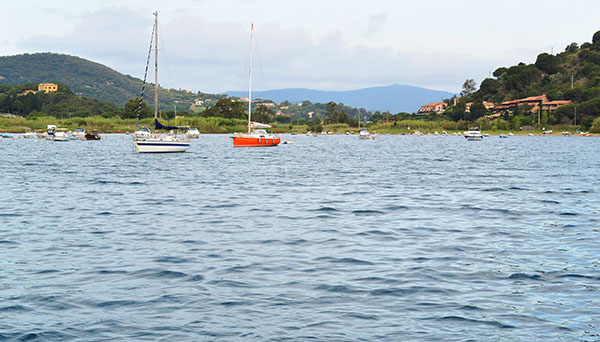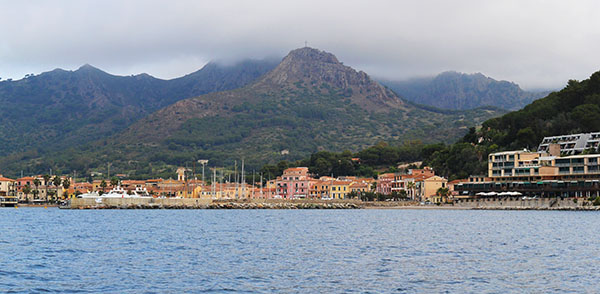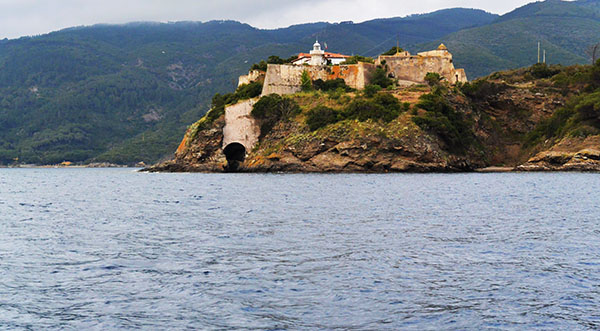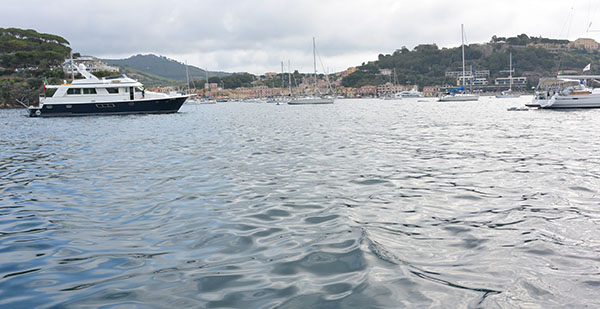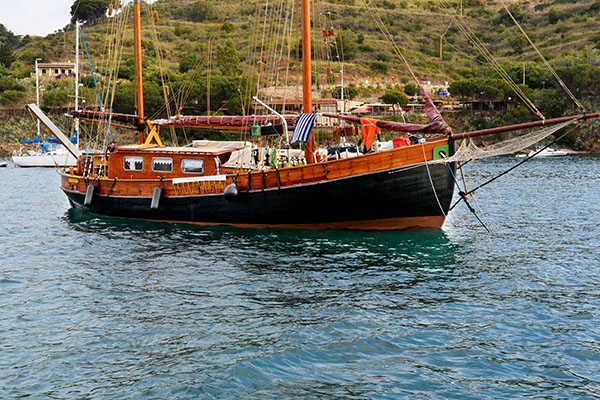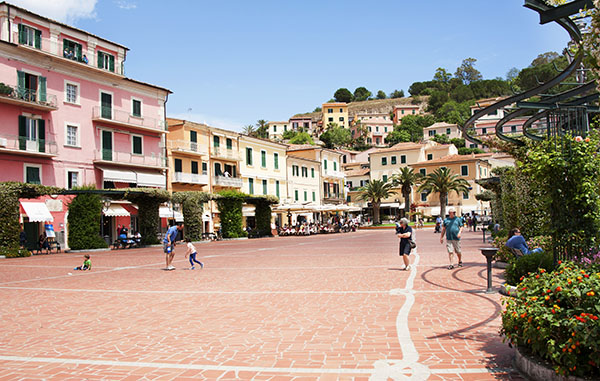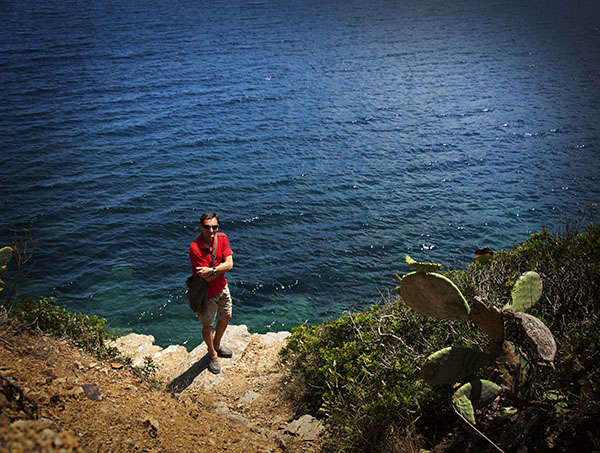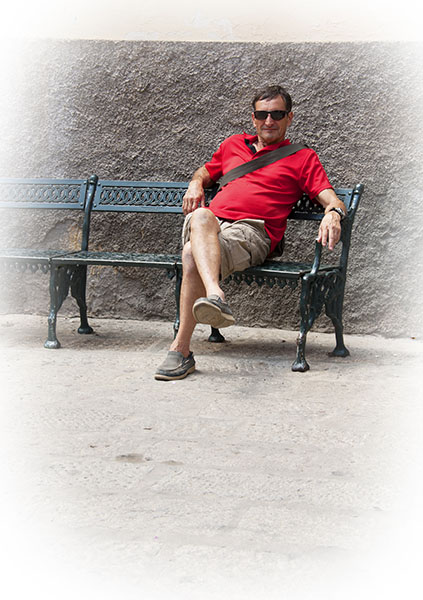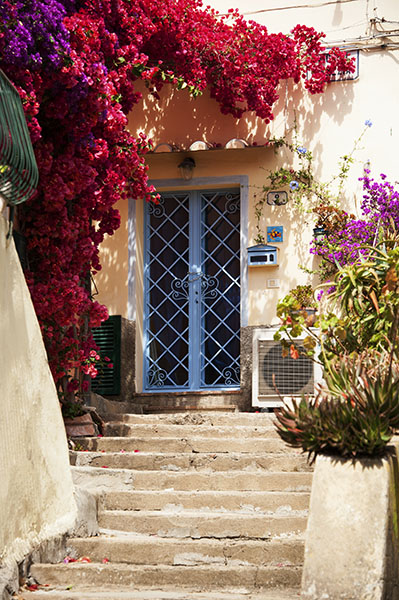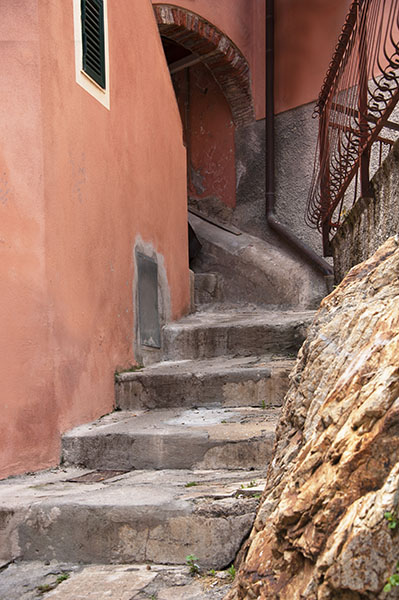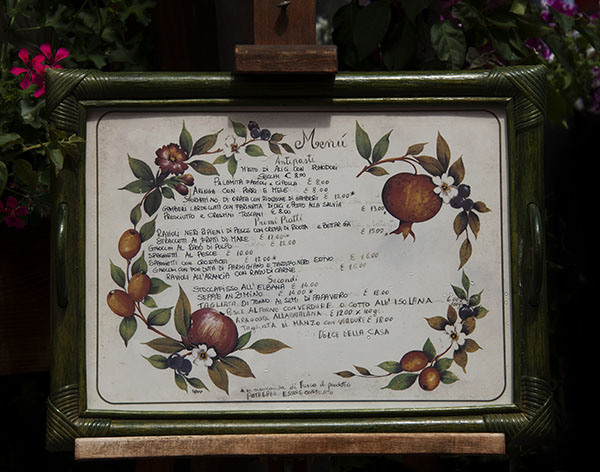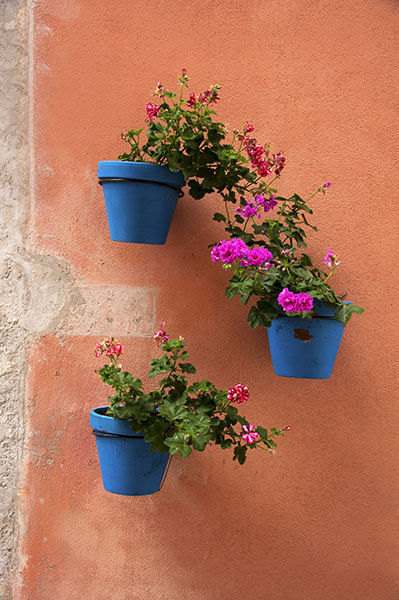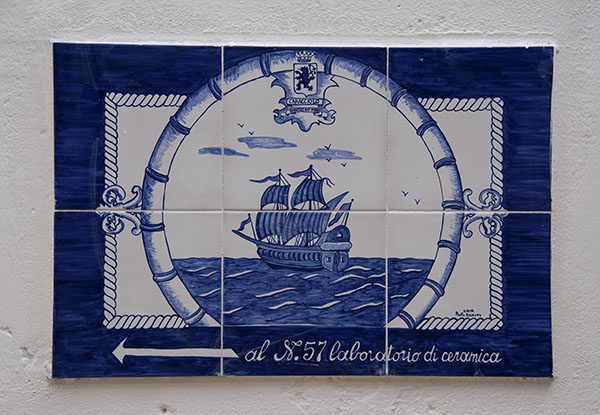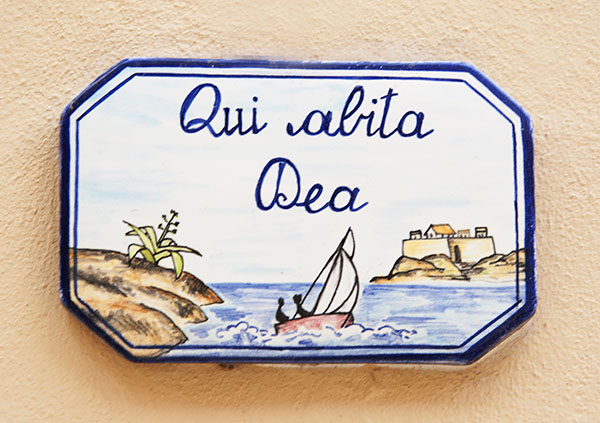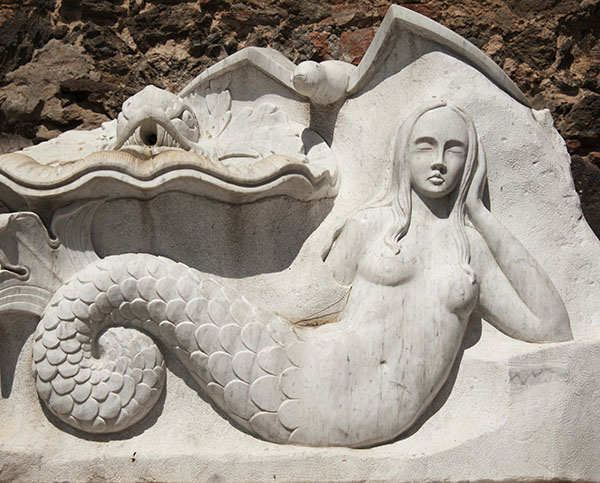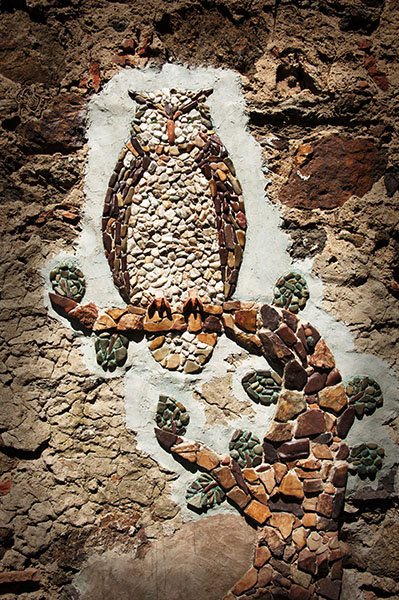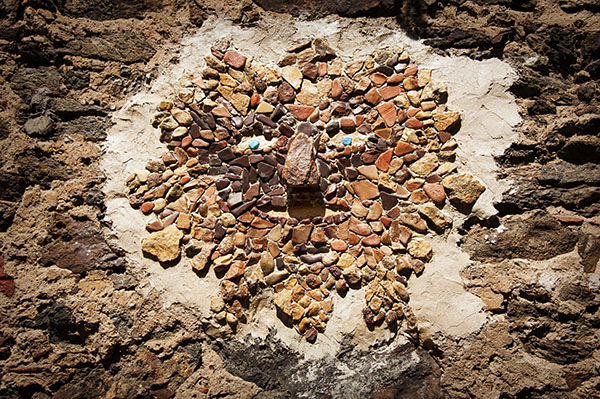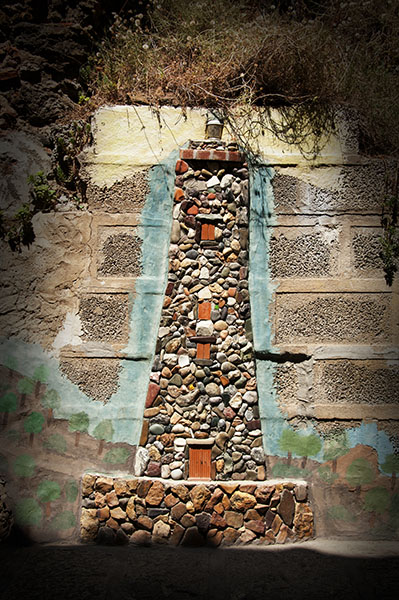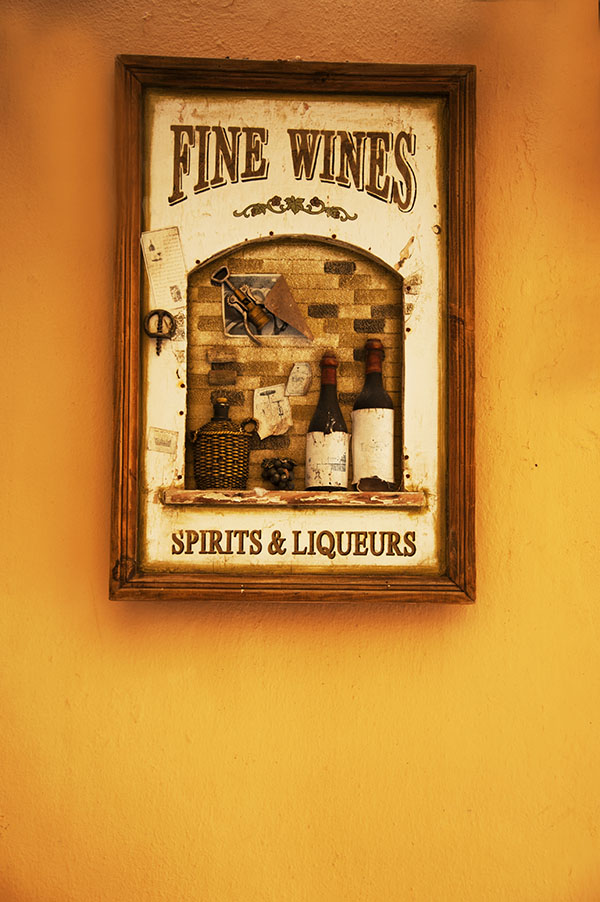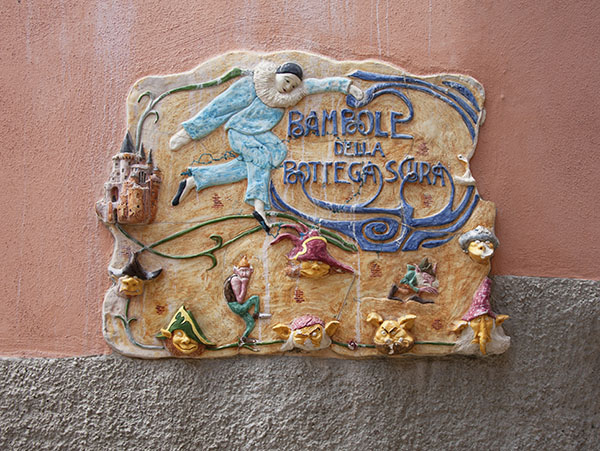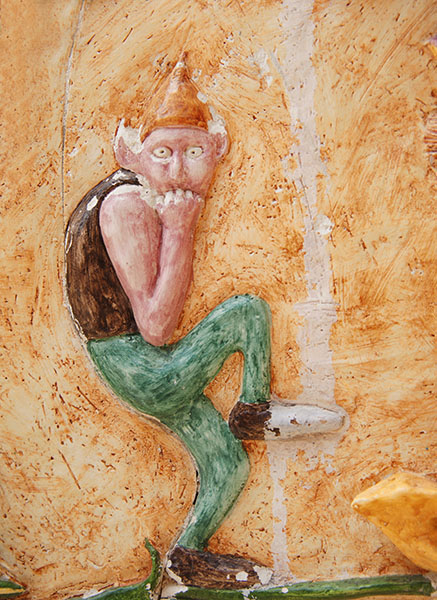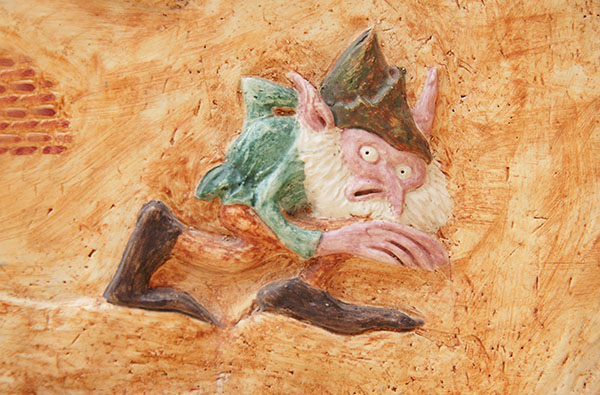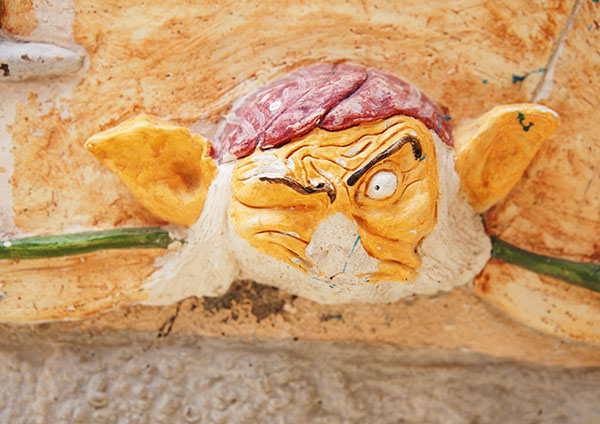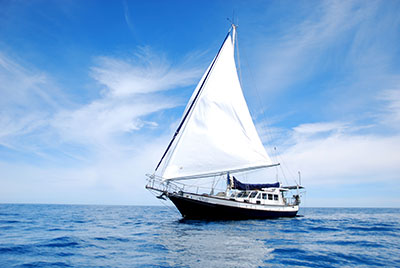A pleasant all night sail/motor where fishing boats were the only hazards to really beware of: in the Mediterranean very few have AIS and many don’t use their lights. Even when they see you, the helmsman will abruptly make a turn and head directly for you.
The Isle of Elba (https://en.wikipedia.org/wiki/Elba), some parts of which were formed over three million years in the past, was picturesque and pristine. Entering a massive bay, surrounded both sides by low hills thickly encased in carpets of green bush and trees,
a multitude of anchored yachts greeted our eyes as Gratis motored deeper in.
To the furthermost extremity where the shallowest waters were to be found we pointed her bow. There lay a marshland bed of reeds over which the peaks of a towering craggy mountain side towered, creating the perfect picture post card effect.
We delighted in coming across this beautifully kept wooden planker.
This was the island to which Napoleon was exiled, after the united forces of Russia, Prussia, Austria and Sweden invaded France following his defeat in the Battle of Leipzig. Remaining there for a duration of three hundred days, he at last managed to evade the various forces guarding the island whereby he returned to France for his final confrontation and defeat.
Breakfast downed, dinghy lowered, across the bay we motored to the tiny township of Porto Azzurro.
This wasn’t a town where there were sights galore to explore. More so it was a place to let the senses feel.
Low lying buildings of no more than three stories in muted browns and creams; carefully manicured plant displays within which vibrant bougainvillea contrasted gently against the white of the sweet smelling honeysuckle; the township exuded a tranquil atmosphere that left the visitor feeling lethargic in a good sort of way.
We delighted in finding the small touches that went towards making the town so unique.
During the early hours of daylight, the yachts had up anchored and departed, evening upon us, a new group arrived to experience the magic of Elba.
